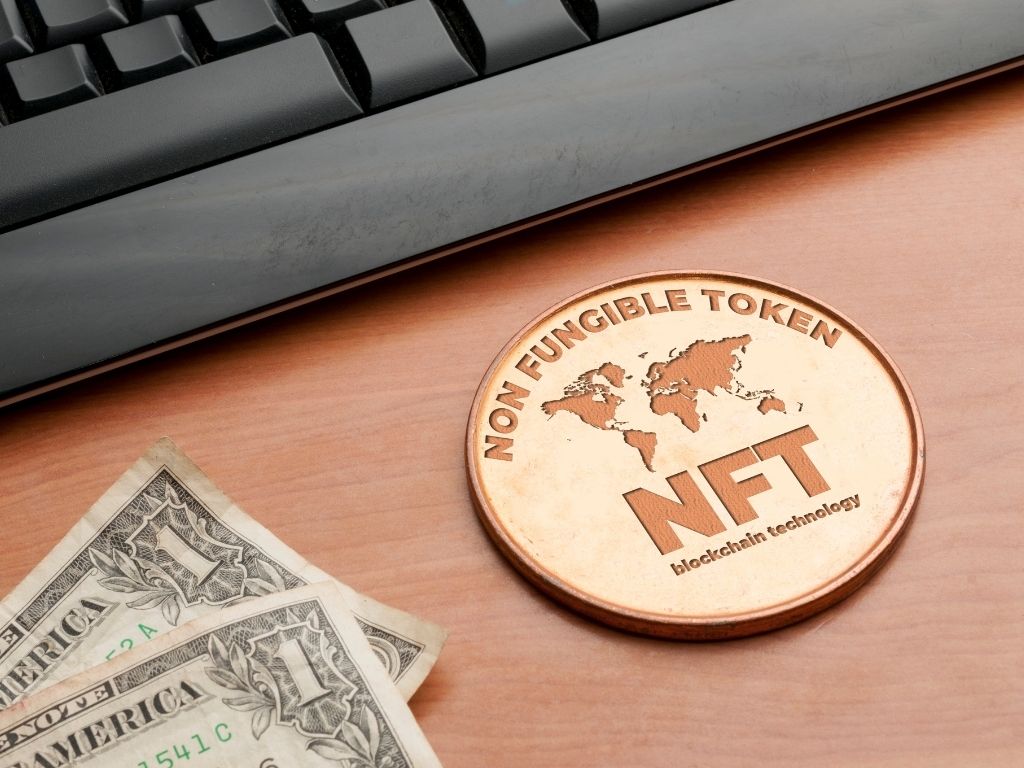Amazing Ways Utility-Focused NFTs Are Disrupting Real Estate Ownership In 2024
Utility-focused NFTs are changing the way we think about owning real estate. By using blockchain technology, these digital assets are making property transactions faster, more accessible, and secure. This article explores how these innovative NFTs are reshaping the real estate market and what it means for buyers and investors.
Key Takeaways
- Utility-focused NFTs simplify property transactions by reducing paperwork and speeding up the process.
- Fractional ownership allows more people to invest in real estate, making it accessible to those with limited funds.
- Blockchain technology enhances transparency and security in real estate, reducing the risk of fraud.
- Smart contracts automate agreements, ensuring all parties meet their obligations without intermediaries.
- The future of real estate ownership is likely to involve NFTs, changing traditional models and attracting new investors.
The Rise of Utility-Focused NFTs in Real Estate
Understanding Utility-Focused NFTs
Utility-focused NFTs are changing how we think about ownership, especially in real estate. These digital tokens provide real value beyond just being collectibles. They can represent ownership of a property, making transactions easier and faster.
Historical Context of NFTs in Real Estate
NFTs have evolved from simple digital art to complex assets in real estate. Initially, they were seen as a novelty, but now they are recognized for their potential to streamline property transactions. The shift towards blockchain technology has made it possible to secure ownership and transfer rights in a way that was not feasible before.
Key Players in the Market
Several companies are leading the charge in integrating NFTs into real estate. Notable players include:
- Propy: A platform that allows users to buy and sell properties using NFTs.
- City DAO: A decentralized organization that enables fractional ownership of land through NFTs.
- Black Manta Capital Partners: They are acquiring high-value properties to sell as fractional NFTs.
| Company Name | Focus Area |
|---|---|
| Propy | Buying and selling homes |
| City DAO | Fractional ownership of land |
| Black Manta Capital Partners | Acquiring blue-chip real estate |
The future of real estate ownership is being reshaped by the integration of blockchain and NFTs, making transactions more efficient and accessible.
Streamlining Transactions with NFT Real Estate
Reducing Paperwork and Bureaucracy
The traditional real estate process involves a lot of paperwork and red tape. NFTs can simplify this by linking property ownership directly to a digital token. This means less time spent on documents and more focus on the actual transaction.
Speeding Up Property Transfers
With NFTs, property transfers can happen almost instantly. Instead of waiting for days or weeks, buyers and sellers can complete transactions in a matter of hours. This is a game changer for the real estate market.
Smart Contracts and Their Role
Smart contracts are self-executing contracts with the terms directly written into code. They play a crucial role in NFT real estate transactions by:
- Automating the transfer process
- Ensuring that all conditions are met before a sale is finalized
- Reducing the need for intermediaries like lawyers and agents
The future of real estate transactions is here, and it’s digital. By using NFTs, we can make buying and selling properties faster and more efficient than ever before.
| Traditional Process | NFT Process |
|---|---|
| Weeks of paperwork | Instant transfer |
| Multiple intermediaries | Direct transactions |
| High costs | Lower fees |
In conclusion, the integration of NFTs into real estate is set to revolutionize how we buy and sell properties, making the process smoother and more efficient.
Fractional Ownership: Making Real Estate Investment Accessible
What is Fractional Ownership?
Fractional ownership allows multiple people to own a part of a property. This means that instead of one person buying a whole house, several people can buy shares of it. This makes real estate investment more affordable for everyone. Each owner gets a piece of the property without needing to manage it all by themselves.
Benefits of Fractional Ownership
- Lower Investment Costs: Investors can buy smaller shares, making it easier to enter the market.
- Shared Responsibilities: Owners can share the costs and responsibilities of managing the property.
- Access to High-Value Properties: People can invest in expensive properties that they might not afford alone.
Case Studies of Successful Implementations
Several platforms have successfully implemented fractional ownership in real estate:
- Propy: This platform allows users to buy and sell homes as NFTs, making transactions smoother.
- RealT: Focused on the U.S. market, it enables investors to earn rental income from fractional shares.
- Fraction: This platform allows investments starting at just $150, making it accessible to many.
Fractional NFTs are more than just a way to share ownership—they’re transforming the digital economy.
By using fractional ownership, more people can participate in real estate investments, breaking down barriers that once made it difficult for many to enter the market. Investing in real estate is becoming more inclusive and accessible than ever before.
Ensuring Transparency and Security in Real Estate Transactions
How Blockchain Ensures Transparency
Blockchain technology is a game changer for real estate. It provides a secure and transparent way to record property transactions. Every transaction is recorded on a public ledger, making it easy to trace ownership and history. This reduces the chances of fraud and ensures that all parties can verify the details of a transaction.
Preventing Fraud with NFTs
NFTs, or Non-Fungible Tokens, add another layer of security. They represent ownership of a specific property and are unique to that asset. This means that the secure nature of blockchain-backed NFT ticketing systems ensures that each property transaction is recorded and easily traceable. Here are some ways NFTs help prevent fraud:
- Unique identification of properties
- Immutable records of ownership
- Easy transfer of ownership without intermediaries
Legal Considerations and Challenges
While the benefits are clear, there are still legal challenges to consider. The use of NFTs in real estate is still new, and laws are catching up. Some important points include:
- Regulatory compliance: Ensuring that all transactions meet local laws.
- Consumer protection: Safeguarding buyers from potential scams.
- Title issues: Ensuring that the NFT accurately reflects the property title.
The integration of blockchain and NFTs in real estate is not just a trend; it’s a shift towards a more secure and efficient market.
Innovative Use Cases of Utility-Focused NFTs in Real Estate
Tokenizing Physical Properties
Tokenizing real estate means turning a physical property into a digital asset. This process allows for easier ownership transfer and can make buying and selling properties much faster. Here are some key points about tokenization:
- Ownership is clear: Each token represents a specific property, making it easy to see who owns what.
- Fractional ownership: People can buy a part of a property instead of the whole thing, making it more affordable.
- Quick transactions: With NFTs, transactions can happen in minutes instead of days.
Using NFTs as Collateral
NFTs can also be used as collateral for loans. This means that instead of using physical property, people can use their NFTs to secure a loan. Here’s how it works:
- NFT as security: The NFT acts as a promise that the borrower will pay back the loan.
- Access to funds: This opens up new ways for people to get money without selling their assets.
- Potential growth: As the NFT market grows, more lenders may accept NFTs as collateral.
Future Prospects and Trends
The future of NFTs in real estate looks bright. Here are some trends to watch:
- Increased adoption: More people are starting to understand and use NFTs in real estate.
- Legal recognition: As laws change, NFTs may become a standard part of real estate transactions.
- Innovative platforms: New platforms are emerging to make buying and selling real estate NFTs easier.
The shift towards utility-focused NFTs is changing how we think about property ownership. This amazing NFT market shift is not just a trend; it’s a revolution in real estate.
Building and Managing NFT Marketplaces for Real Estate
Top Platforms for Real Estate NFTs
The rise of utility-focused NFTs has led to the emergence of various platforms where real estate can be bought and sold as NFTs. Here are some of the leading platforms:
- Propy – A pioneer in real estate NFTs, Propy allows homeowners to list their properties as NFTs, facilitating secure transactions.
- RealT – Focused on fractional ownership, RealT enables investors to earn rental income through their NFT investments.
- Vesta Equity – This platform helps homeowners sell portions of their homes as NFTs, making real estate investment more accessible.
Steps to Create Your Own Marketplace
If you’re interested in building your own NFT marketplace for real estate, consider these steps:
- Choose a Blockchain – Select a blockchain that supports NFTs, such as Ethereum or Algorand.
- Develop Smart Contracts – Create smart contracts to automate transactions and ensure security.
- Design the User Interface – Make the platform user-friendly for buyers and sellers.
Challenges and Solutions in Marketplace Management
Managing an NFT marketplace comes with its own set of challenges:
- Legal Compliance: Ensure that your marketplace adheres to local laws regarding real estate transactions.
- User Trust: Build trust by implementing robust security measures and transparent processes.
- Market Education: Educate users about the benefits of NFT real estate to encourage adoption.
The future of real estate ownership is evolving, and NFTs are paving the way for a new wealth frontier with blockchain and real-world assets. As more people embrace this technology, the potential for innovation in real estate is limitless.
The Future of Real Estate Ownership with NFTs
Predictions for Market Growth
The real estate market is on the brink of a major transformation. NFTs are set to revolutionize ownership by making transactions faster and more secure. Experts predict that by 2025, the market for real estate NFTs could reach billions of dollars, driven by increased adoption and technological advancements.
Potential Regulatory Changes
As NFTs gain traction, regulatory bodies will likely step in to create guidelines. This could include:
- Defining NFTs as legal assets
- Establishing standards for transactions
- Protecting buyers and sellers from fraud
These changes will help legitimize the use of NFTs in real estate, making it safer for everyone involved.
Impact on Traditional Real Estate Models
The rise of NFTs will challenge traditional real estate practices. Here’s how:
- Reduced reliance on paperwork: Transactions can be completed digitally, cutting down on time and costs.
- Increased accessibility: Fractional ownership allows more people to invest in real estate.
- Enhanced transparency: Blockchain technology ensures that ownership records are secure and verifiable.
The future of real estate is not just about buying and selling properties; it’s about creating a more inclusive and efficient market for everyone.
In summary, the integration of NFTs into real estate ownership is not just a trend; it’s a fundamental shift that will reshape how we think about property and investment.
Final Thoughts
In conclusion, utility-focused NFTs are changing how we think about owning real estate. They make buying and selling homes faster and easier, cutting down on all the paperwork that usually slows things down. With NFTs, people can invest in real estate without needing a lot of money, thanks to options like fractional ownership. This means more people can join in and own a piece of property. Plus, NFTs help keep everything transparent, making it harder for fraud to happen. As more people start to use NFTs in real estate, we can expect big changes in how we buy and sell homes. The future looks bright for this new way of owning property.
Frequently Asked Questions
What are utility-focused NFTs in real estate?
Utility-focused NFTs in real estate are digital tokens that represent ownership or rights to a property. They help simplify buying, selling, and managing real estate.
How do NFTs speed up real estate transactions?
NFTs can make real estate transactions faster by reducing the need for paperwork. They allow ownership transfer in minutes instead of days or weeks.
What is fractional ownership in real estate NFTs?
Fractional ownership allows multiple people to own parts of a property through NFTs. This makes it easier for more people to invest in real estate.
How do NFTs ensure security in real estate deals?
NFTs use blockchain technology to secure ownership records. This makes it hard for anyone to commit fraud or impersonate the real owner.
Can I buy real estate NFTs?
Yes, you can buy real estate NFTs on various platforms like Propy and Vesta Equity, which specialize in digital property transactions.
What happens to legal documents when I buy a property with an NFT?
When you buy a property with an NFT, the legal documents are usually provided as NFTs once the sale is complete, ensuring you have all necessary paperwork.
Stay informed with daily updates from Blockchain Magazine on Google News. Click here to follow us and mark as favorite: [Blockchain Magazine on Google News].
Get Blockchain Insights In Inbox
Stay ahead of the curve with expert analysis and market updates.
latest from tech
Disclaimer: Any post shared by a third-party agency are sponsored and Blockchain Magazine has no views on any such posts. The views and opinions expressed in this post are those of the clients and do not necessarily reflect the official policy or position of Blockchain Magazine. The information provided in this post is for informational purposes only and should not be considered as financial, investment, or professional advice. Blockchain Magazine does not endorse or promote any specific products, services, or companies mentioned in this posts. Readers are encouraged to conduct their own research and consult with a qualified professional before making any financial decisions. The featured image used is just a creative depiction of the title and it does not intend to hurt sentiments of any person or institution. If it hurts anyone sentiments, please do not hesitate to reach out to Blockchain Magazine.

 Bitcoin
Bitcoin  Ethereum
Ethereum  XRP
XRP  Tether
Tether  Solana
Solana  USDC
USDC  Dogecoin
Dogecoin  Cardano
Cardano  Lido Staked Ether
Lido Staked Ether  TRON
TRON  Chainlink
Chainlink  Wrapped Bitcoin
Wrapped Bitcoin  Sui
Sui  Wrapped stETH
Wrapped stETH  Avalanche
Avalanche  Stellar
Stellar  Hedera
Hedera  Toncoin
Toncoin  Shiba Inu
Shiba Inu  LEO Token
LEO Token  Hyperliquid
Hyperliquid  Bitget Token
Bitget Token  Litecoin
Litecoin  WETH
WETH  USDS
USDS  Polkadot
Polkadot  Bitcoin Cash
Bitcoin Cash  Ethena USDe
Ethena USDe  MANTRA
MANTRA  Wrapped eETH
Wrapped eETH  Uniswap
Uniswap  Ondo
Ondo  Pepe
Pepe  Monero
Monero  Aave
Aave  WhiteBIT Coin
WhiteBIT Coin  NEAR Protocol
NEAR Protocol  Mantle
Mantle  Official Trump
Official Trump  Aptos
Aptos  Dai
Dai  Internet Computer
Internet Computer  Ethereum Classic
Ethereum Classic  Bittensor
Bittensor  Cronos
Cronos  OKB
OKB  POL (ex-MATIC)
POL (ex-MATIC)  Gate
Gate 




